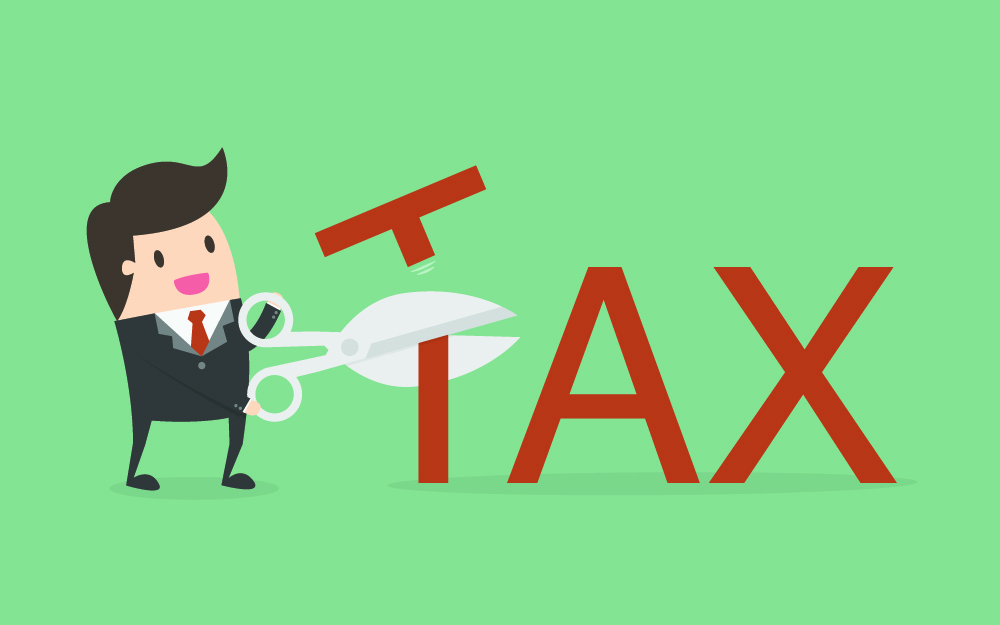“Death and Taxes are the Only Sure Things in Life” – Benjamin Franklin
Did you ever notice that, when they talk about business magnates in the Media, they typically refer to the magnate by his total wealth, rather than how much money he brings home each year? The typical headline these days might start with the phrase, “billionaire Elon Musk is preparing to launch a new Tesla model….” People love to throw around the phrase “billionaire” …but they never mention exactly how much money Elon Musk or other luminaries of the business world take home every month.
That is because most very wealthy people actually seek to minimize their income, while at the same time maximizing their net worth. Why would this be? If you owned a large, thriving and lucrative business, wouldn’t you want that business to write you a fat, juicy check each month?
Not necessarily. Because fat, juicy checks typically also bring a tax bill which can spoil anybody’s appetite. In America today, most taxation revolves around income, not assets. Therefore, one way to lower your tax bill is to lower your income.
But don’t these business big shots need huge income to pay for their gold-plated lifestyles? Believe it or not, the answer is typically, “no.” Elon Musk is said to own at least four different mansions in the Los Angeles area totaling $100M in value. That sure does seem like a lot of money. But it actually pales in comparison to his multibillion-dollar net worth. Believe it or not, Elon Musk is actually living well within his means. If his businesses paid out extra income to him, all it would mean would be a gargantuan tax bill and a scramble to figure out where to put all the cash.
Of course, I am not a Titan of Industry, and you probably aren’t either. However, if we aspire to be rich, we might as well learn from people who have already achieved that goal. Simply put, to become wealthy, you should be accumulating more assets than what you need to fund your daily lifestyle. Other than the minimum cash you need to pay your bills, defer the income, or get ready to feed Uncle Sam’s insatiable hunger.
One great way to build wealth without income is to invest in young biotech companies. These companies seek to generate wealth for shareholders through stock price appreciation, not income. Along the way they build tangible assets that have a measurable value. However, many are so young, they don’t yet generate a profit. Some are so young that they actually have no revenue at all.
Biotech Investor as Real Estate Developer
What??? Why would a company with no profit, and not even revenue, be trading publicly to begin with? Why on earth would you want to invest in a company that hasn’t even brought in a single dollar yet?
Before we go any further, let’s be clear: investing in any pre-revenue company is risky business. If you choose to bet on this kind of company, you are hoping to buy into world changing innovation early, while the price is still low, before the rest of the world discovers what is going on in the company’s laboratories. You are taking a calculated risk, because any perceived value is theoretical, and based on things that you think will happen.
In this kind of scenario, biotech companies are much more like real estate development companies. Except, instead of developing communities or shopping malls, they are developing molecules. A real estate development company seeks to create physical projects that will eventually generate tangible, real revenue. But it may have to invest for years before any one project becomes obviously viable. It’s the same scenario for a young biotech.
Try this mental exercise. You walk through a gentrifying part of town, and you notice a ramshackle building on a choice corner lot. The location is obviously great, but right now it’s not worth much because the lot is occupied by a slum. The next month, you walk by the same lot, and you notice the slum has been razed, and there is a shiny new sign saying “coming soon, luxury rentals.”
At that moment, the developer has already sunk huge amounts of money into purchasing the lot, razing the slum, and obtaining plans and permitting to move forward with a speculative new development. They haven’t put one piece of rebar in the ground yet…revenue is far away. But does that mean the project has no financial value? Or, in fact, does it have a larger value than it did when it was just a slum, because substantial progress has already been made? This is just the same as a young biotech with novel agents in early clinical testing.
Now let’s say, six months later, you walk by the same lot, and you notice that construction has begun, and a towering rental building is half built. Still, little tangible
cash flow for the developer, and certainly no profit. Does that mean no real financial value? Is the lot worth more than it was six months ago, when it was a barren slum, or more, now that it’s halfway to being a brand-new venture? This would be the equivalent of a pre-revenue biotech with agents that have passed through some important trials, but are not yet ready for launch.
Finally, a year after you first laid eyes on the property, you see a tower has been mostly completed. At least the outside is all done, and the developer is planting trees and grass around the property…a new sign is up proudly pronouncing, “coming soon.”
All this progress, but still no revenue, and certainly no profit! But would the value of the project be more than it was when it was only half built? This would be a biotech with
agent, or agents, that have just passed stage three testing, and about to file for FDA approval. Although the young company still hasn’t made a dime in tangible profit, they obviously now possess assets that they have greatly increased in value.
The reason why these kinds of companies would want to be public would be to provide some liquidity to management and scientific teams that can toil for years to build up the company’s scientific assets. Let’s say you are a chief medical officer, and you joined the young biotech when it’s novel agent was still being tested in rats. Now you have an agent that has made it all the way through phase two testing. This means that your work has consistently increased the value of the company’s assets for quite some time, even if this work has not yet resulted in revenue for the company. In fact, from “preclinical” to phase two could take years. But you have bills that need to be paid today. By earning shares in a young, pre-revenue company, you can keep paying your bills until your big breakthrough finally comes. Simply put, young companies that allow shares to trade publicly may well increase the patience and financial endurance of their high value executive teams. Revenue or not, value is being created as a drug marches along the development process, and share based compensation helps a young company make that value tangible for employees and early investors.

No Income, No Tax
All of this value is created, without generating income. This means you have deferred taxes. To return to the example above, let’s say that you buy shares in a young biotech right as it launches its first Phase One clinical trial. You buy at $5.
Five years later, the biotech has put the same molecule though many other trials, and produced great results, attracting the attention of the Media and financial analysts. Now the stock trades at $20.
But it’s still a small company, and it might not have the resources to bring a drug to market all by itself, so it sells itself to a larger Big Pharma company. They pay the shareholders half in stock, and half in cash. So now you finally have to pay long term capital gains taxes on your greatly appreciated shares, but ONLY on the cash portion of the payment. The stock payment is tax free. So now, you have successfully deferred the taxes on half of your investment yet again. Now you own Big Pharma shares, and the whole process of share price appreciation begins again. It could be years before you finally sell your remaining shares and have to pay taxes.
This is what Elon Musk does. At a recent civil trial, he testified that most of his net worth is actually tied up in two unprofitable companies (Tesla and SpaceX). One of the reasons why these companies have not produced an annual profit is because they are constantly pushing boundaries, and investing in innovation (much like biotech). Both companies produce tangible, measurable growth assets in the form of patents and proprietary new technology (much like biotech). This strategy minimizes Musk’s tax bill, and maximizes the growth potential of his wealth. You can do the same.
The essay was originally posted on infoforinvestors.com








2 thoughts on “MINIMIZE YOUR TAXES WITH BIOTECH INVESTMENTS”
Comments are closed.